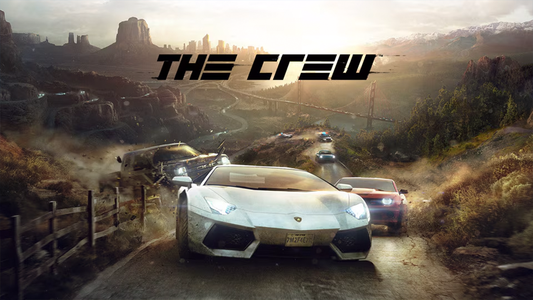Henrik Fåhraeus is the Game Director of Stellaris. He is a veteran game designer and currently the head of the design department at Paradox Development Studio. Over the years, he has worked as both a designer and programmer on most titles the studio has released.
Rikard Åslund is the Project Lead of Stellaris. He has been with Paradox Development Studio since 2011, working on games such as Crusader Kings II and Europa Universalis IV. Before he became Project Lead on Stellaris, he worked as a Senior Programmer.
INTRODUCTION
Henrik: Paradox Development Studio is known for making its own particular brand of strategy games; very historical and quite hardcore. Our designers, especially, are absolute history nuts (me included, of course!).
However, after having made a few games like this, we started dreaming of applying our knowledge to something different, a project where we could let our imagination run wild where we wouldn’t be shackled by historical events and processes. I think the first time a space game was seriously mentioned in the office must have been way back in 2005 or so. However, those times were still tough for the studio and we were better served sticking to safer ground.
Fast forward to late 2012. Times were good. Crusader Kings II had elevated the studio to a new level and we were looking to expand and try new things. So, in parallel with the development of Europa Universalis IV (which we regarded as a pretty safe bet), we started up a risky new project, codenamed "Nero". This was to become Runemaster, our ill-fated venture into the RPG genre.
In 2013, we thought we should aim even higher, and I started writing design drafts for a space game, codenamed "Augustus." I was torn between making either a kind of Crusader Kings in space, with a rich written lore and various interesting empires and dynasties (think Frank Herbert’s "Dune"), or a more traditional 4X with special focus on exploration (which I hadn’t seen done before.)

I wrote high concepts for both options, but we eventually went ahead with the latter for several reasons. We saw a potential opening in that market and we didn’t want to compete too much with our own historical games. We also wanted to make a truly accessible and easy-to-learn game for once, and the small, symmetrical start of the standard 4X lends itself better to that purpose. So, when it was clear that Europa Universalis IV was another hit, production went ahead full speed on what was to become Stellaris!
My basic idea was to marry scripted, branching storytelling with the 4X genre and our own Grand Strategy formula. I love the little stories in the game FTL (and, naturally, Crusader Kings II), so I thought it should be possible…. and it really seems it was, because so far Stellaris has broken all records for the studio!
Rikard: Stellaris has in many ways been a dream project of mine. Sci-fi games have always had a certain attraction to me that few other games ever had. I love dreaming myself away to an alien world and the feeling of exploring something new and unknown. Stellaris gives me precisely that sensation. I feel extremely proud of what the team has achieved.
DATA BOX
Developer: Paradox Development Studio
Publisher: Paradox Interactive
Release Date: 2016-05-09
Platforms: Windows, Mac and Linux
Number of Developers: 8-15
Length of Development: ca 32 months

WHAT WENT RIGHT
1. The Early Game
Henrik: We spent a lot of time working on the early game and the player’s initial experience; surveying planets, working the surface tiles of your homeworld, discovering anomalies and making first contact with alien empires. I think we pretty much nailed this (although we still need more weird objects to find and study on the actual map.) Of course, the whole team tends to spend the most time playing the early game, so it naturally gets more love. Most critically, perhaps, it was the part of the game that I felt would make Stellaris stand out the most from other games in the genre, so I tended to obsess more over it. For example, I really wanted unknown aliens to be, well, unknown. You should not be able to see the names and classes of their ships anywhere, and I wanted different graphics for unknowns in the fleet view. I even made sure that if you’re playing a xenophobic empire, unknown alien fleets would look menacing in the fleet view, and be referred to with words like “threat” and “menace” (and the opposite for xenophiles). This was a fairly late addition, and should serve as an example of the kind of attention we kept giving the early stages of the game. If the entire game was as engaging as the early game, I would be satisfied (which is a rare thing for a designer).
2. Art & Sound
Henrik: We made an early misstep with the look of the graphical interface, imagining it should be super clean, minimalistic and mostly devoid of color variations. We corrected this gradually as we went, and apart from the remnants of that poor decision, the game looks and sounds beautiful. Everything in the game looks far better than I originally envisioned (though it also cost a wee bit more than originally budgeted); the ships, the planets, the aliens, everything is gorgeous. Kudos to our fantastic artists and graphics programmer! For the first time, we also had a dedicated audio director, and you really can tell from the quality of the sound effects and the voiceover; it’s like a tapestry of sounds...

3. Accessibility
Henrik: This was one of our main goals with the Stellaris project, and I am really happy with the results. Starting on a single planet helps immensely to smooth out the learning curve since the more complex mechanics only come into play when you’ve grown bigger. I’m also satisfied with the “GUI hygiene” and, of course, VIR - the robotic advisor!
In our previous games, we have relied on a separate tutorial where you go through chapter after chapter learning about different mechanics. For that to work, we had to anticipate all the ways that players could break the tutorial and so we had to deactivate different parts of the interface, etc. Even more importantly, players want to play the game; they don’t want to have to go through hours of tutorial lessons first. The very fact that such a tutorial exists can be intimidating to new players (“Wow, this game must be super complex… Screw it, I’m going to play Candy Crush instead.”)
Admittedly, we are latecomers to this realization (or rather, to make it a priority); most other games have already taken the step to in-game advisor systems. Now, to make our own lives easier, I wanted the in-game advisor to be more reactive than proactive: It’s much harder to break a tutorial like this if it keeps responding to your actions rather than ordering you around. I’d have liked to develop the reactiveness more, and to have the advisor be more helpful in the later stages of the game as well, when players are introduced to more complex mechanics like our war and peace system. I’d also have liked the advisor to speak and behave more differently depending on your governing Ethics. Still, I am happy with the system overall, and I don’t see us doing an out-of-game tutorial ever again; though we can certainly make further improvements. It does seem like we’ve reached a new type of player and brought them into the fold.
4. Stability & Quality
"For the first time, we had a project being run by one tech-focused lead and a design-focused lead."
Rikard: Historically our project teams have been very small (they still are in comparison to other companies) and back in our not-so-distant past the project lead acted as both tech lead, design lead and project lead. This allowed us to be extremely quick when making decisions, because the project basically was controlled by one person. With Stellaris, the team was a lot bigger so it was obvious that one person wasn’t going to be able to do everything. Because of that, we changed the structure within the project after some time in such a way that I moved from my senior programmer/tech lead position to project lead and Henrik moved to a game director/design lead position.
Why is this relevant for the stability and quality of the game you ask? Well, because this is one of the main reasons why both stability and quality is so high in Stellaris. For the first time, we had a project being run by one tech-focused lead and a design-focused lead. Henrik had the final decision on what we would do and I decided when and how, this gave a really healthy constant friction between us two that forced us to constantly make compromises for what would best for the game at the given time. Balance is everything, because having a game that always crashes hides the quality that you have and on the other hand having a game that never crashes doesn’t mean that it has any quality. Both Henrik and I know from experience that you need them both to succeed and Stellaris is living proof of this.
5. Multiplayer
Rikard: When I worked on EU4 we put a lot of effort on making sure that MP (multiplayer) worked well with very little OOS (out-of-sync, the state of the game is different between the host and client) behavior. However, back then, we didn’t have MP as a priority right from the start of development, and so, we didn’t make sure the code architecture was suited for MP.
I was certain this was a mistake that I didn’t want repeated with Stellaris. Right from the start of development we made it clear that OOS and issues with hotjoin (joining an already running game) were considered critical issues and should be resolved as soon as possible. A huge problem we had in our other games is that it was troublesome to reset the game to the same state as when it was started. Loading a save game or resigning always leaked states over to the next new game you started. This causes huge problems in multiplayer, because it is super important that the clients and host have the exact same s
No tags.





































